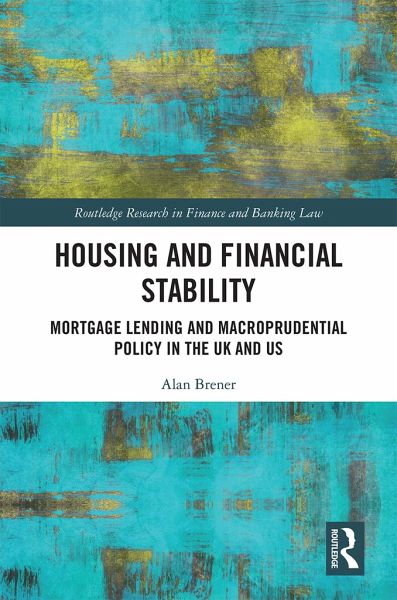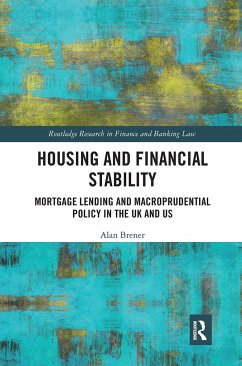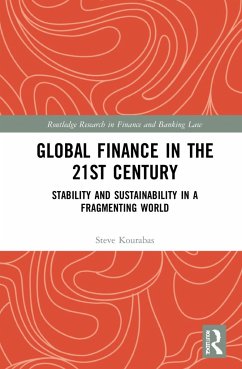
Housing and Financial Stability
Mortgage Lending and Macroprudential Policy in the UK and US
Versandkostenfrei!
Versandfertig in 1-2 Wochen
168,99 €
inkl. MwSt.
Weitere Ausgaben:

PAYBACK Punkte
84 °P sammeln!
This book brings together politics, law, financial services regulation, economics and housing policy in the analysis of mortgage lending and macroprudential policy in the UK and US. The book addresses the relationship between housing policy, credit and financial instability in light of the recent global financial crisis, and proposes both short and long-term solutions. Although it is not known where the next crisis will come from, history suggests that it will have credit and property at its source. Thus, it is important that the UK and other countries look more broadly at what should be done ...
This book brings together politics, law, financial services regulation, economics and housing policy in the analysis of mortgage lending and macroprudential policy in the UK and US. The book addresses the relationship between housing policy, credit and financial instability in light of the recent global financial crisis, and proposes both short and long-term solutions. Although it is not known where the next crisis will come from, history suggests that it will have credit and property at its source. Thus, it is important that the UK and other countries look more broadly at what should be done in terms of policies, institutions and tools to make the housing market and mortgage lenders more resilient against a future crisis. This book sets out a number of workable proposals. Central to this work are questions relating to the quantitative macroprudential measures, such as loan-to-value (LTV) and debt-to-income (DTI) restrictions, and whether these can be used to any significant extent in western democracies and, if employed, whether they are likely to be effective. In particular, the book questions the political legitimacy of their use and the potential consequences for the institutions, such as central banks, promulgating such policies. Preserving financial stability in very uncertain market conditions is of key importance to central bankers and other regulators, and macroprudential policy is a rapidly growing subject for both legal and economics study. This book will therefore be of interest to financial professionals, policy-makers and academics.













